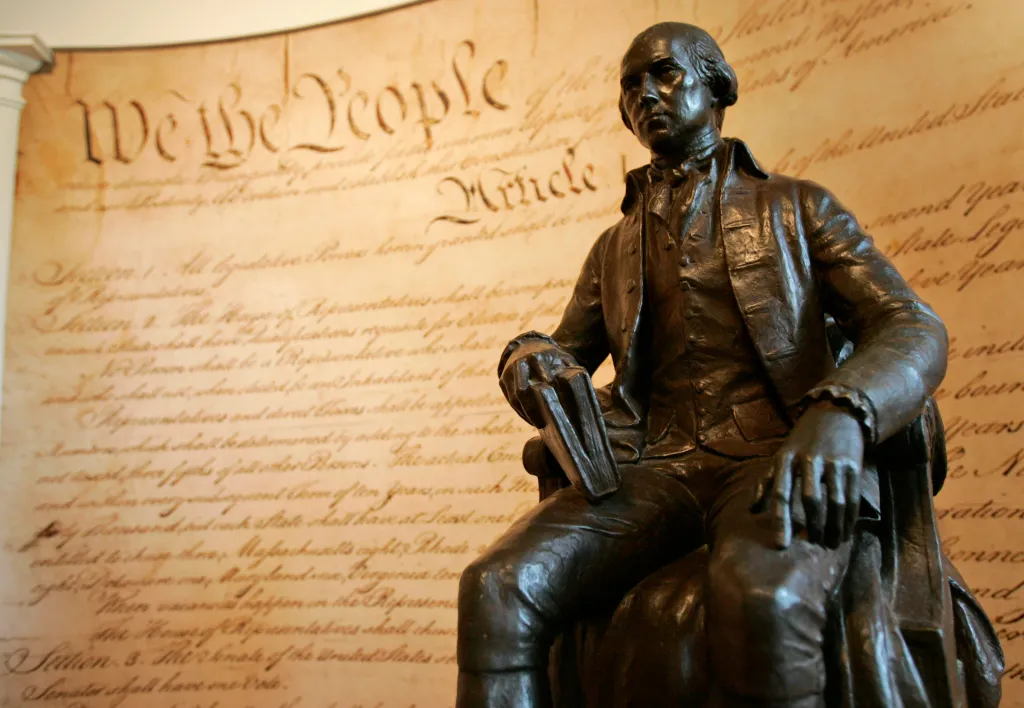
It seems that every year the University of Pennsylvania’s Annenberg Public Policy Center releases a poll showing that, by and large, Americans struggle to answer basic questions about our system of government. The annual Constitution Day Civics Survey routinely paints a grim picture of the public’s knowledge and understanding about the institutions and laws that shape our country.
There is some better news in this year’s edition, with more survey respondents correctly answering questions that would be fitting for a citizenship test. But there is great room for improvement still, demonstrating the continued need for civics education in our schools.
Some 238 years ago in Philadelphia, a group of American statesmen signed a document that would change the fortunes of their fledgling country and, in time, the world. Today is Constitution Day, which marks the date of ratification by the Constitutional Convention and, in essence, the start of the United States.
The delegates originally gathered to amend and reform the Articles of Confederation, which was adopted in 1777 and served as our federal system through the Revolutionary War. But as problems worsened and the federal government was constrained from regulating commerce and paying its debts, those gathered in Philadelphia began a new and courageous experiment in self-government that would more tightly bind the states to one another.
The U.S. Constitution was then, and remains, the most significant reordering of the relationship between people and their government since the Magna Carta, putting power in the hands of the public and setting forth the parameters for an elected representative federal government. It is also a living document, shaped by centuries of experience and amended 27 times, which is fitting for our ever-evolving country.
Yet, even as we live under this system of government, Constitution Day reminds us yet again that the general understanding about the specifics of that system, its laws and institutions is alarmingly shallow, though slightly better than last year.
The Annenberg survey, released last week, shows 70% of adults could name all three branches of government (legislative, executive and judicial) and increase from 65% in 2024. And 79% (nearly 4 in 5 respondents) could name “freedom of speech” as one of the five rights protected by the First Amendment, an increase from 74% last year.
Drill down, though, and the numbers start to get dicey. Some 13% of respondents couldn’t name a single branch of government and 1 in 5 people (18%) failed to name any of the protected First Amendment rights. About 40% could name three or more, which is a jump from 30% last year, but only 9% could name all five (speech, religion, assembly, press and petitioning the government).
The Annenberg researchers don’t break down the results on a state-by-state basis, but one would hope those numbers would be higher for those in the commonwealth. Virginia is the home to eight presidents — including Thomas Jefferson, who authored the Declaration of Independence, and James Madison, known as father of the Constitution — as well as numerous landmarks that are integral to understanding our nation’s history.
Virginia also does well to promote civics education in our public schools, which includes instruction about the federal system as well as state and local government. Imbuing students with greater knowledge of the events and debates which shaped our country in turn produces more engaged citizens who are active in improving their communities.
Civics instruction helps to ensure that the next generation of leaders knows their rights and responsibilities. It makes them more likely to vote, to serve in government and run for elected office. And it helps protect and preserve the fundamental principles on which this nation was founded, including a government of, by and for the people, to paraphrase Abraham Lincoln.
As challenges to our institutions and laws proliferate, it’s vital that this Constitution Day encourages a greater commitment to civics education, helps rekindle faith in our system of government and ensures its strength long into the future.



